When a draft security agreement between China and Solomon Islands was leaked, it instantly sparked concerns among U.S., Australia and New Zealand about Chinese influence in the region where they have been dominating for decades. The deal would allow the deployment of Chinese “police, armed police, military personnel and other law enforcement and armed forces”.
The agreement also allows China to make ship visits, provide logistical replenishment and have stopovers and transition in the Solomon Islands. After the Pacific island nation confirmed the new security partnership on Friday (March 25), saying it was expanding ties with China to combat security threats and ensure a safe environment for investment, Canberra went berserk.
Upset, Australia Prime Minister Scott Morrison said there is great concern across the Pacific family because “we are in constant contact with our Pacific family”. He was referring to Australia and New Zeland as the “Pacific family” who have been providing security support and responding to crises. The Solomon Islands already has a security agreement with Australia since 2017.
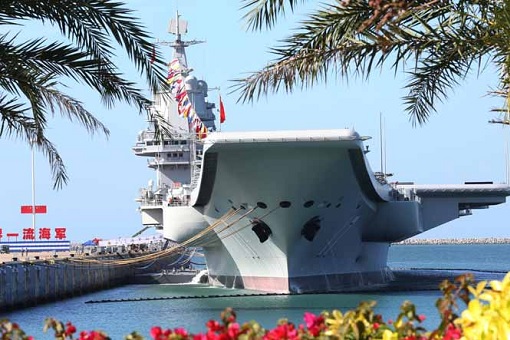
Morrison said – “I will be in further discussions with leaders over the course of this weekend, there was a meeting yesterday with our head of mission and Prime Minister Sogavare. We are the Solomon Islands’ single largest development partner, daylight second, third, fourth”. The U.S. is also similarly upset with the presence of China in the small Pacific nation.
Last month, Washington said it would reopen an embassy in Honiara (which it closed in 1993), fearing China was seeking to strengthen military relations there. It’s not hard to understand why the U.S. and Australia are particularly panicked. The China-Solomon Islands pact is one of the most significant security developments in decades that could threaten Australia’s national security interests.
The Solomon Islands, a nation of hundreds of islands in the South Pacific has a population of about 700,000 people. But it is just about 2,000 kilometres (1,240 miles) northeast of Australia. Clearly, any presence of Chinese security forces that remotely resembles a military base would spook Australia because China is now in its backyard.
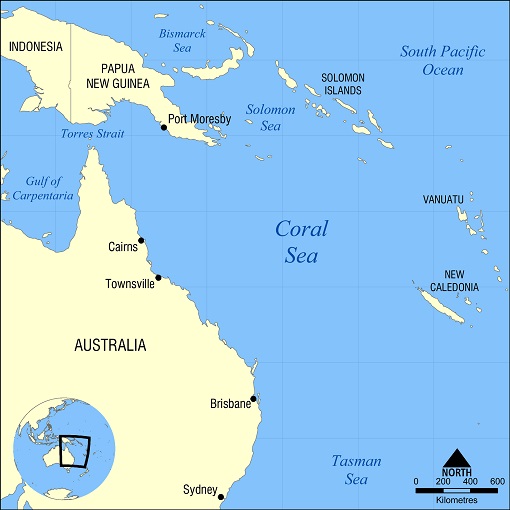
Australia’s defence minister Peter Dutton said any move to establish a Chinese military base in Solomon Islands would be a matter of concern. He said – “We want peace and stability in the region. We don’t want unsettling influences and we don’t want pressure and coercion that we are seeing from China”. However, Beijing has played down the presence of its security forces.
Calling on all parties to view the security cooperation “objectively and calmly and not over-interpret it”, Chinese foreign ministry spokesman Wang Wenbin said – “Some Australian politicians have published some fallacies of so-called Chinese coercion and deliberately created an atmosphere of tension, which is extremely irresponsible and does not help regional stability and development”.
China’s growing influence has been visible as early as 2019 when the Solomon Islands switched diplomatic recognition to China from Taiwan. The decision, however, had sparked tension between the national government under Prime Minister Manasseh Sogavare and the pro-America Malaita Provincial Government, leading to a 3-day riot in November 2021 in Honiara.
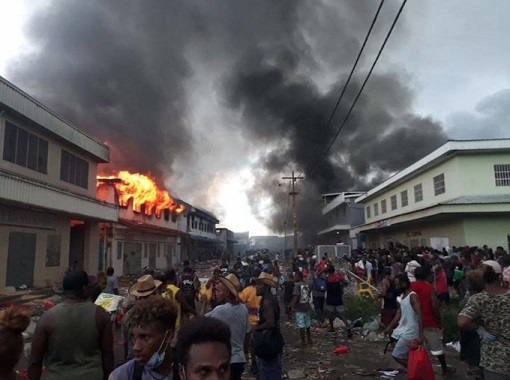
Anti-Asian sentiment spread which saw violence and destruction targeting Honiara’s Chinatown district. At least 4 people were killed and over 70 businesses were destroyed. Australia sent 100 police and defence force personnel to help quell unrest. But at the same time, China also contributed police during the riots largely because Chinese nationals and projects were being targeted.
On Friday, Morrison complained to reporters in Sydney that Australia is a “leader” in the region, and having splashed up to US$1.7 billion in aid contribution to the Solomon Islands. However, China too has its development investment, included humanitarian needs and maintaining the rule of law. In getting the best deals, Solomon refers Australia and China as “Solomon Islands two major partners”.
Beijing has since sent police liaison officers to train the Royal Solomon Islands Police Force in public order, as well as anti-riot equipment. The inability of more than 200 peacekeepers from Australia, Fiji, Papua New Guinea and New Zealand to prevent Chinatown from being attacked has provided justifications for China to present its own security force proposal to the Solomon Islands government.
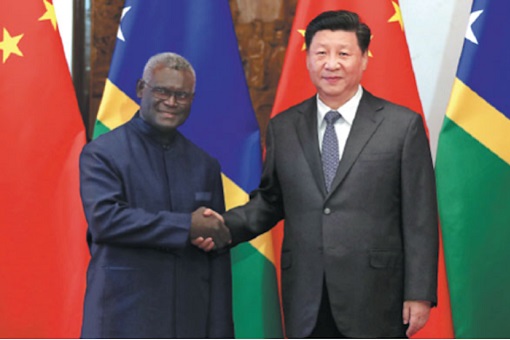
The land Down Under has every reason to be concerned and panicked. The presence of Chinese naval forces in the Pacific island will have a significant impact on the balance of security in the region as it would complicate Australia’s ability to move ships, submarines, and aircraft along its eastern coast. China will be watching Australia from the Solomons.
It was already bad that Australia is defenceless against Chinese ballistic missiles fired from artificial island bases in the South China Sea, some 3,500 kilometres away. Now, it becomes worse when the Chinese can attack the Aussie from just 2,000 kilometres away. Even if China has no plan to attack, it can now monitor and spy on Australia much easier.
Unlike the three major artificial island military bases in the South China Sea, which the U.S. and Australia claim as illegal and illegitimate, a Chinese military base in Solomon Islands cannot be disputed because it is a legal agreement between two nations. Besides, what type of democracy that says the Pacific island can sign a deal with Canberra, but not Beijing?
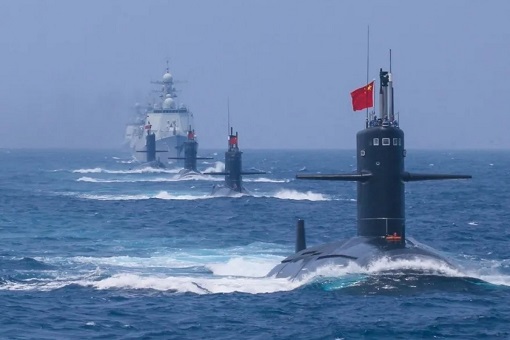
Not only China can argue the new agreement is “in line with the international law and international practice, conducive to maintaining social order in the Solomon Islands and promoting peace and stability in the region”, soon the Chinese Navy could use the U.S.’ playbook and say that its warships are merely conducting a freedom of navigation in the backyard of Australia.
During World War II, Imperial Japan and the United States fought for control over these islands as they were critical for maintaining logistical supply lines and projecting military power. Any country that controls the islands would posses the geostrategic value in this region. But it’s not only about Australia or New Zealand, two members of the Five Eyes, a group of five English speaking countries.
The Chinese military presence in the Solomon Islands will enable Beijing to break through the encirclement by U.S. armed forces that are currently present in the region such as in Guam, Japan, and South Korea by positioning the Chinese forces behind them, therefore outflanking the U.S. Now, America has to think twice (constantly watch its back) about an intervention if China decides to invade Taiwan.
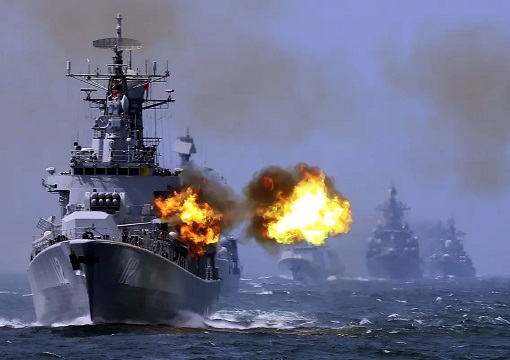
Besides sandwiching the U.S. forces, China may use Solomon Islands as a deployment and a refuelling hub to deny the American forces the ability to project power by threatening their logistical supply lines. Australia has no one to blame but itself. Its reckless decision to get nuclear submarines and establish AUKUS with the U.S. and UK has only forced the Chinese to set up a base in its own backyard.
Just how serious is China’s threat to the Australian national security? According to David Llewellyn-Smith, founding publisher of MacroBusiness and former owner of leading Asia Pacific foreign affairs journal The Diplomat, Australia must be willing to invade the Solomon Islands and topple its government if that’s what is necessary to stop the proposed security pact between China and the Pacific island.
In fact, the presence of a Chinese naval base in the Pacific region has been compared to the 1962 Cuban Missile Crisis, when the world plunged into the prospect of its first Nuclear War as Russia deployed nuclear missiles to Cuba on America’s doorstep. Such comparison screams hypocrisy and double standard because the U.S. has more than 800 military bases around the world.
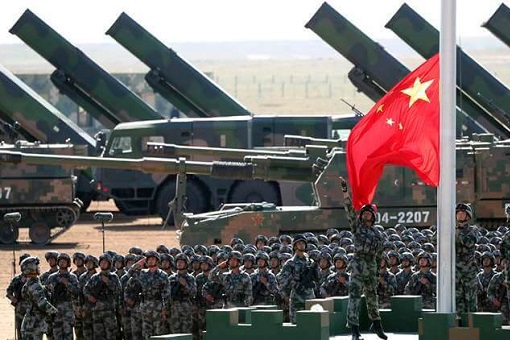
Exactly why only the U.S. can set up military bases in the backyard of every country that it fear could challenge its military prowess, but not China? The fact that the Chinese forces are within striking distance will certainly give Canberra sleepless nights. But at the same time, the U.S., Australia and New Zealand should take a hard look why Solomon Islands are rolling red carpet for China.
In reality, China has always had a presence in the South Pacific. Ethnic Chinese have resided in the region for centuries, running some of the region’s oldest trading houses. That explains the existence of Chinatown in Solomon Islands. Between 2006 and 2017 China provided about US$1.5 billion in foreign aid to the Pacific Islands region through a mixture of grants and loans.
Because Pacific nations are also among the most exposed to natural disasters in the world, it makes them one of the most fragile regions in the world. Countries like the U.S. and Australia have little interest to invest there, but set the wrong priority by demanding to see improvements in “governance”, when the Pacific nations were desperate for financial aid and development.
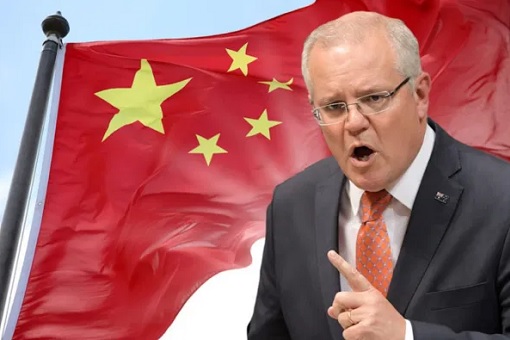
Instead of good governance, China gladly fulfilled the “bread and butter” demand in the region. For the Solomon Islands, two-way trade with China now makes up 46% of all trades. Since 2006, China’s trade, aid, diplomatic, and commercial activity in the Pacific region has been steadily skyrocketing. The U.S. and Australia would pretend to be caring only after news of new Chinese military bases.
Other Articles That May Interest You …
- Australia’s Poseidon Spies On China Warships, But Quickly Complains When The Chinese Navy Retaliated With A Laser
- U.S. Stunned & Upset – China Fired “Mach 5” Hypersonic Missile That Can Bypass Radar Shields And Hit The U.S.
- China Unveils Military Drone That Can Fly For Almost 24 Hours & Other Military Tech Including Moon Rocket
- Australia’s Beef Export Worth A$3 Billion To China May Not Recover – Permanently & Completely
- Economic Destabilization – How China Prepares For American & Japanese Military Interference In Taiwan Conflict
- China Will Import Coal From Any Country, Except Australia – PM Morrison Upset Over Impact On The A$14 Billion Industry
- Warning To The U.S. – China Fires Nuclear-Capable “Aircraft-Carrier Killer” Ballistic Missiles In South China Sea
- Relax, It’s A Staged Attack To Save Face!! – Iran Launched 22 Missiles Against US Military Bases … With Zero Casualty
- China Navy Force Expansion – Warships Dock In Cambodia, Triggering Fears Of A New Naval Base
- Vanuatu Military Base – Australia Panic As China Secretly Militarizing Its Backyard
- Chinese Flag Raised At Sri Lanka Port Raises Concern Of China Secret Naval Base

|
|
March 27th, 2022 by financetwitter
|


|

|

|

|

|

|




























Comments
Add your comment now.
Leave a Reply